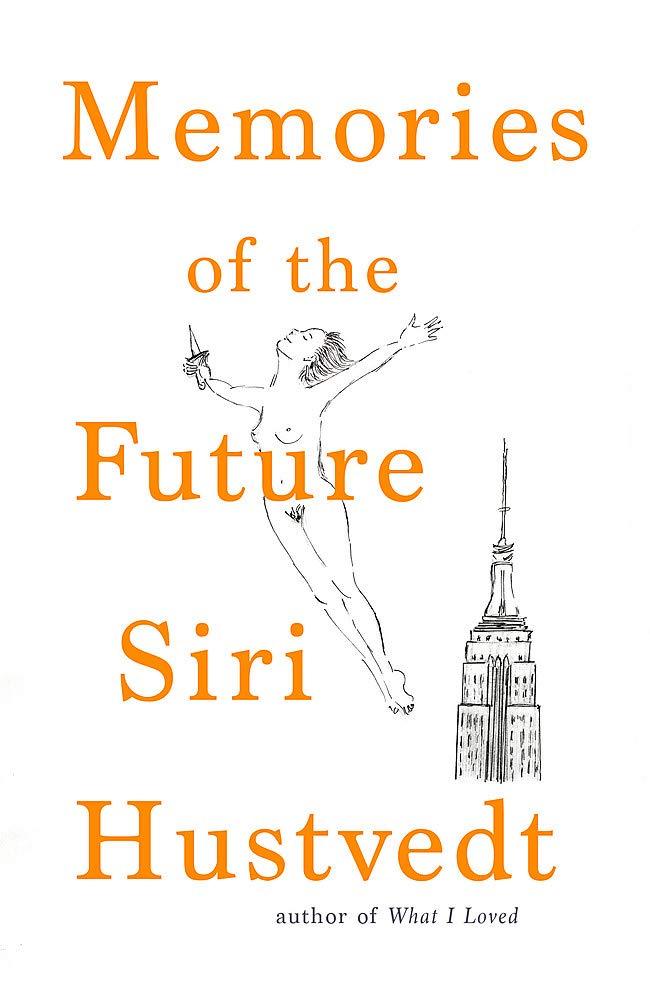Memories of the Future by Siri Hustvedt review: Bursting with rage at the patriarchy and all its perceived failures
The novel is a springboard for all kinds of ruminations on life, time, writing and feminism

At the tail end of the 1970s, a young writer with the initials SH moves from the wilds of Minnesota into a tiny apartment in grimy, violent New York, where she intends, before taking up an academic post, to write her first novel, a murder mystery featuring a boy detective whose idol is Sherlock Holmes (note those initials).
SH, we infer, is a version of Siri Hustvedt. The novel – and it is very much a novel, despite the occasional sheen of memoir; indeed, there are little digs throughout at the kind of pretension to accuracy peddled by auto-fiction practitioners like Karl Ove Knausgaard – is a springboard for all kinds of ruminations on life, time, writing and feminism.
The text consists of pages from SH’s notebooks; SH’s memories of her childhood; extracts from the abortive, wayward first novel; and her transcripts of her neighbour Lucy Brite’s ramblings. There is a fierce, intelligent energy at work in the sentences, as SH grapples with her novel and her life as an artist. Puritanical and single-minded, she spends hours reciting poetry so that it will feed into the rhythms of her prose; she also wastes large chunks of time listening through a stethoscope to the unhinged ramblings of Lucy Brite, whose incessant tales seem to feature a husband who beat her, as well as a dead son and a dead daughter.
Male oppression of women is the overarching theme: it’s as if Hustvedt, every time she tries to write something, finds herself confronting the same thing. A fascinating thread throughout the whole is the fate of the Dadaist artist Baroness Elsa von Freytag-Loringhoven, who, Hustvedt posits, was the real source of Marcel Duchamp’s famed urinal.
Much attention has recently been paid to female artists whose contributions have been erased by male chancers. The recent biopic Colette documented how the author’s husband hid her identity for years, whilst in The Wife, a male Nobel Prize-winner’s novels are revealed to have been (mostly) written by his wife. That such things should continue to come to light is a necessary and important thing.
SH finds herself becoming a ghostwriter too, albeit for a woman, as she pens a memoir for a rich Jewess called “The Rebellious Debutante”. I found myself longing for pages from this book, which at least seems to have some humour in it, not least a story about a lover caught washing out a condom in a sink.
Mostly, though, Memories of the Future is a catalogue wearily familiar from the #metoo movement, in which men place their hands patronisingly on their wives’ shoulders; boorishly explain things that women already know; they plead, steal, rape, and get away with it because they are men. SH’s husband, a physicist, receives a mere whisper of a mention. A suggestion that it is possible for men and women to have positive and fulfilling relationships might not have gone amiss.

Lucy Brite, (whose endless inanities I could have done without), turns out to be a member of an unlikely coven, complete with pentagrams, circles and the usual guff about primal women, who rush to Hustvedt’s help when she is assaulted by a handsome man she’s brought home to her apartment. It is a classic scene, and SH’s fury knows no bounds. To SH’s credit, she submits everything to the same scrutiny, even questioning her own motives in bringing her would-be rapist back with her. She is an investigator of a kind, as well, seeking truth.
There is power here, fearsome and electric, bursting with rage at the patriarchy and all its perceived failures. And yet the scenes it describes are so familiar that they are almost tropes. In the end, Memories of the Future seems in its single-mindedness to drink a little too deeply from the fountain of the past.
Memories of the Future by Siri Hustvedt is published by Sceptre, £18.99
Join our commenting forum
Join thought-provoking conversations, follow other Independent readers and see their replies
Comments
Bookmark popover
Removed from bookmarks